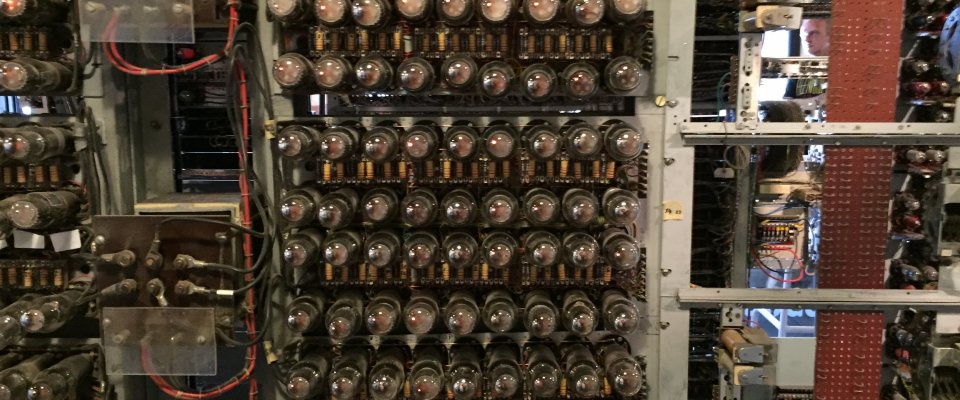Bletchly Park
Sat, 25 Jul 2015

I managed to make my first visit to Bletchly Park today. Bletchly is famous as the location of the second world war code-breakers - that included Alan Turing - who cracked the German Enigma machine. The site is is now a museum dedicated to the work done during the war, as well as the RSGB Radio Museum and the National Museum of Computing.
The site is becoming something of the UK's 'tech museum' hub and it makes you realise how important the work done across the UK was in enabling the 'information age'. From the discovery and development of radio, through the theory and creation of the first computers and ultimately the invention of the web, the UK has been at the forefront of technical innovation.
It was also interesting to see the transformation of Alan Turing from obscure mathematician to national hero. When I was a student he was really only known by computer scientists and mathematicians. "On Computable Numbers" was required reading (even though I didn't really understand it!) and the Turning Machine (more understandable, especially without the maths) and Turing Test (that one made sense) were familiar concepts.
To see him venerated at Bletchly was satisfying. I even got to sit at a (his?) desk in his office in Hut 8! Of course, many others were involved in this work, and people like Gordon Welchman are starting to get the recognition they deserve now that Turing's story has raised interest.
At the National Museum of Computing you could see the start of a collection and narrative explaining the history of computing in the UK. They had a fully working rebuilt 1940s Colossus Mark II machine, they are working on a 1950s EDSAC, they have lots of 60s and 70s machines and all the classic home computers from the 1980s. Scarily, one of their biggest exhibits was an ICL 2966 mainframe - a machine I first programmed when it was state-of-the-art in the late 1980s!
As I their collections grows over time I suspect the full story of the UK's involvement in the development of computing will be told at the site.
See my photos from the visit here on Flickr.

